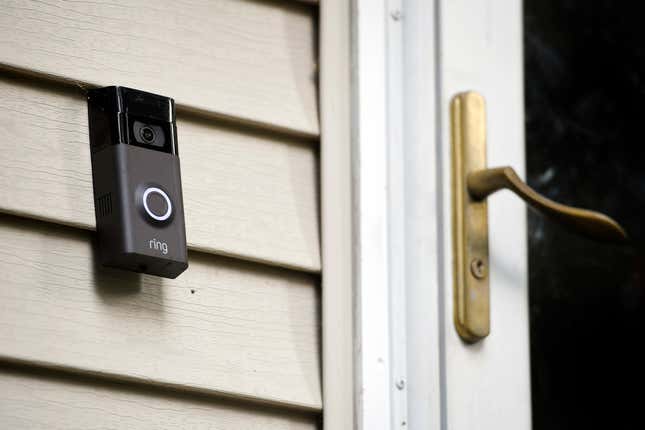Amazon Is Giving Ring Camera Footage to Police Without Owners’ Consent
For years, Amazon claimed police could only access homeowners’ Ring camera footage through court orders or explicit permission.
EntertainmentEntertainment

News about Amazon doing horrible things isn’t exactly, well, news anymore, but the almost cartoonishly evil corporation has somehow topped itself: Amazon has apparently been sharing people’s Ring camera footage with law enforcement agencies without owners’ consent, the company revealed, following questioning from Sen. Ed Markey (D-MA).
For years, Amazon has claimed that police could only access homeowners’ Ring camera footage through court orders or explicit permission from the owners of the footage. Now, the company says police are able to request and access Ring footage through a platform called “Neighbors Public Safety Service,” which has 2,161 law enforcement users—a “more than five-fold increase” since 2019, Markey says. According to the Senator, this year alone, Ring has given footage to police 11 times without customers’ consent.
-

-

-

-

-

-

-

-

-

-

-

-

-

-

-

-

-

-

-

-

-

-

-

-

-

-

-

-

-

-

-

-

-

-

-

-

-

-

-

-








































